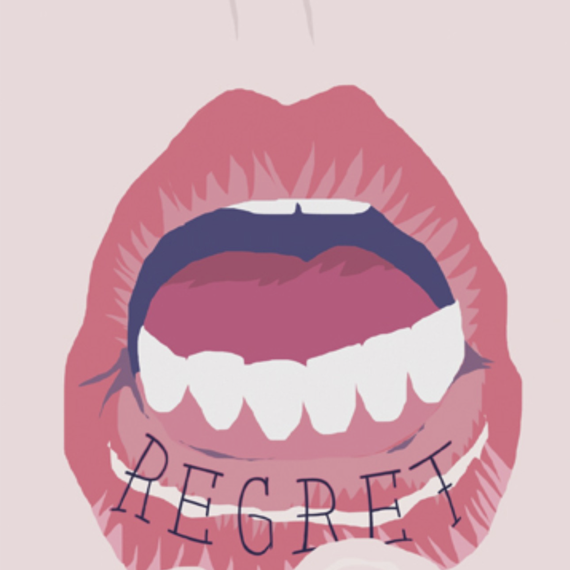2014 was a year of profound gender discussion in the literary world. While conversations on equality in literature and publishing have circulated for decades, last year many authors took to their social networks and publishing platforms with renewed energy. Questions were posed, answers were built and rebuilt, even more questions were posed.
Writers and readers clocked into 2015 with a freshly-emerging rhetoric to guide them: what are the assumptions we make about gender -- those both within text and our greater community? In a Brooklyn Based interview about publishing prejudice, author Adelle Waldman presents a call-to-action: "I'd like to see individuals -- men and women -- look inward and second-guess their own implicit assumptions about what male writing or thinking is like, and what women's writing or thinking is like."
In his debut collection of essays, Regret (Lettered Streets Press, 2014), author Ryan Spooner explores these assumptions with gentle regard, subtle self-consciousness, and a wholly new type of investigation into masculinity.
Regret is a collective of sorts -- the kind of gathering of memories that doesn't seek to fill its own gaps but instead invites the reader to find the connective tissue. Opening with a scene in which he tries on a pair of his mother's red platform heels, Spooner tactfully focuses on the aspect of costuming, i.e. what it means to conceal oneself as another, rather than the hyper-sexuality of the shoes, or some genderized complexities of a boy trying on heels -- thereby making the reader aware of their own need to over-sexualize or force a caricature.
It is with this kind of delicacy that Spooner navigates the landscape of boyhood and genderization, domesticity and class relations, slowly turning the mirror onto his audience, asking them to consider societal norms without overt authorial direction. He writes, "I was this boy. I considered the bravado, the gestalt of shit-talk part of the male bonding experience, grander than the momentary sting of any one phrase. Though, maybe that grandeur was a delusion on my part."
Through a lens of self-consciousness and shame, we journey from childhood to adulthood with the narrator, a trajectory that Spooner navigates with such grace that it is difficult to remember many of these essays were written ex post facto. In reflecting on his initial writing process for Regret, Spooner says:
"I was reading some of Alphonso Lingis's letters, and in one of them he mentions, in an offhand way, his plan to write Trust. 'I do so like that word,' he says, 'and also the experience.' I thought that was a really wonderful way to begin a project: just pursuing an experience. I began taking notes during my commute, or on walks, or just whenever, trying to capture the feeling of regret whenever it got close, trying to assemble a collection of experiences that were sort of united by the same emotional texture."
Throughout the entirety of Regret, much like the HBO show GIRLS or even the mumblecore movie model, the audience is given the option to see a kind of self-aware remorsefulness as either earnestly sincere or as tactfully manipulative: do we buy it? How much do we hold him, and each other, accountable?
Questioning the purity of someone's remorse is hardly a new idea. Each time a politician has an affair, or a celebrity missteps on Twitter, we assess the authenticity of their remorse based on a spectrum of "how regretful he/she actually looks." Do we see them smiling the next day? Do they appear too groomed or too un-groomed in the courtroom? We've built an entire culture around a sliding scale of shame and repentance.
Which is what makes Spooner's Regret so necessary. His ability to prompt these questions are means enough to rally around this debut...in addition to his elegant descriptions of all things tactile (in particular fabric), and the sense that this collection is one speaking directly to a generation of readers craving everything it encapsulates: natural yet controlled vulnerability, authentic observation of the self, and bearing witness to one's own lived history.
"...for me it's about what I've done (or what I haven't done), and about the knowledge that it could've been done differently--even though it's now impossible to change. It seems like an intense desire to relive some part of the past--coupled with anguish over the fact that you can't. There's this constant looking-back, analyzing, questioning, self-effacing, and asking "What if . . . ?"
